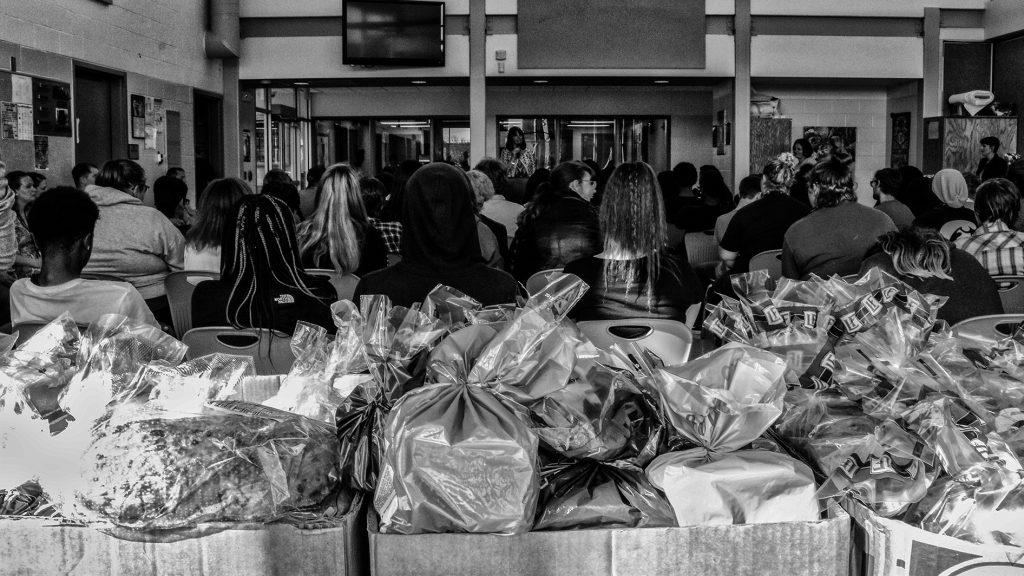The Crisis Center of Johnson County broke ground for the upcoming expansion to its food warehouse on March 16.
In order to meet challenges brought about by expanding service, the Crisis Center comptemplated an expansion for its food warehouse in a strategic plan with initial estimates two years ago.
When the warehouse was built in 2003, the Crisis Center assisted 350 families a week, but today, that number has grown to more than 1,000, said Sara Sedlacek, the communications and development director at the center.
The project is set to address certain needs of the Crisis Center Food Bank, like extra storage for equipment and food. The warehouse will accommodate food for eight mobile food-bank centers and one school center.
One of the problems the food bank warehouse faces is the lack of proper storage of fresh produce, so some of it ends up going to waste. The expansion will include a proper cooler for produce.
The expansion project, carried out by Apex Construction, is set to be completed in June, according to a Crisis Center press release.
“This warehouse is something we’ve been anticipating and needing for quite some time,” said Becci Reedus, the executive director of the Crisis Center.
Sedlacek said funding was the project’s primary hurdle. And so far, the Iowa City community has risen to the challenge.
“The warehouse expansion was funded thanks to a major contribution from the University of Iowa Community Credit Union, which encouraged community members to match its $45,000,” the press release said.
An unforeseen complication for the warehouse expansion came from recent natural disasters. Sedlacek said the hurricanes in Texas and Florida drove up the costs of building materials, and as a result, the original plans underestimated the cost of the project by around $50,000.
“We know how supportive the community is of the Crisis Center and know they’ll step up,” Sedlacek said.
The Crisis Center started with a Crisis Line in 1970 and grew into a 24-hour call center that receives 26,000 crisis calls and texts every year. In 1978, the center started the Food Bank, which supplies food to families in need by the week.
The center also dispatches mental-health counselors to homes, schools, emergency rooms, and public places in which a mental-health crisis is occurring, provides suicide-prevention training, and limited financial assistance to prevent eviction.
Because the Crisis Center also works with community members facing mental-health crises, Sedlacek voiced approval for House Bill 2456, which would expand several mental-health services, including the addition of six regional “access centers.”
Those centers would help people who are having mental-health crises but don’t need hospitalization.
Sedlacek said the Crisis Center is also monitoring the bill to see if its inclusion of a statewide mental-health crisis line would have an adverse effect on the organization.



